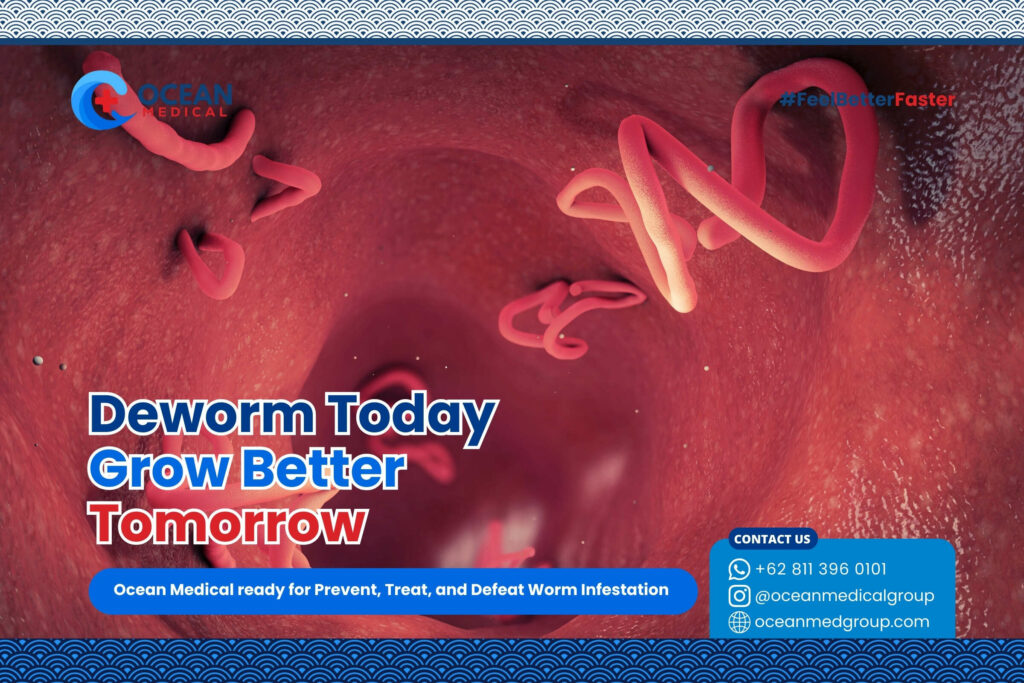Deworm Today Grow Better Tomorrow with Ocean Medical Center Selong Belanak
A Worm Infestation, or helminthiasis is a parasitic infection caused by worm-like parasites called helminths, which can infest the human body through contaminated food, water, or soil. Common helminths include roundworms, tapeworms, and flukes, which primarily infect the intestines but can also affect other organs. Symptoms range from none to diarrhea, abdominal pain, anemia, and malabsorption of nutrients, especially in children. Prevention focuses on improving sanitation, hygiene, access to clean water, and safe food practices.
What are Helminths?
Helminths are macroscopic, worm-like parasites that infect various organs. They are broadly categorized as:
-
Nematodes (Roundworms): These are common intestinal worms.
-
Cestodes (Tapeworms): These are flat, segmented worms.
-
Trematodes (Flukes): These are flat-bodied worms with leaf-like shapes.
How is Helminthiasis Transmitted?
Infection occurs through several routes:
-
Ingestion: Swallowing contaminated food, water, or unwashed fruits and vegetables containing helminth eggs or larvae.
-
Skin Contact: Walking barefoot on soil contaminated with hookworm larvae, which can then penetrate the skin.
-
Contaminated Surfaces: Touching surfaces or items contaminated with infective eggs.
Signs and Symptoms
Symptoms can vary depending on the type of worm and the extent of the infection:
-
Gastrointestinal issues: Diarrhea, abdominal pain, nausea, and vomiting.
-
Malnutrition: Malabsorption of nutrients leading to growth stunting, weight loss, and deficiencies in vitamins and minerals.
-
Anemia: Chronic blood loss in the intestines can cause iron-deficiency anemia.
-
General Discomfort: Weakness, fatigue, and a feeling of general malaise.
-
Eosinophilia: An increase in a type of white blood cell.
Prevention and Control
Preventing helminthiasis involves improving sanitation and hygiene practices:
-
Improved Sanitation: Access to and use of properly functioning toilets for human waste disposal.
-
Clean Water: Availability of safe, clean water for drinking and personal use.
-
Handwashing: Regular and thorough hand washing, especially before handling food.
-
Food Hygiene: Washing, peeling, and thoroughly cooking fruits and vegetables.
-
Avoiding Contaminated Soil: Not walking barefoot on soil that may be contaminated with human or animal waste.
-
Hand hygiene
-
Regular deworming medication (every 6 months) as prescribed by a doctor, especially for children.
-
Ocean Medical ready for Prevent, Treat, and Defeat Worm Infestation.


